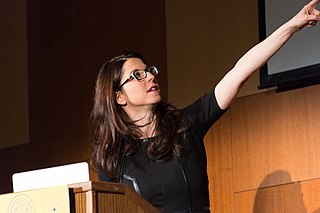A Quote by Maria Konnikova
Part of how easily we go to sleep is genetic: many sleep disturbances, ranging from insomnia to circadian disruption, have a large genetic component.
Related Quotes
People who are contented and serene sleep well. They fall asleep easily, stay asleep, and wake refreshed. Conversely, people who are anxious, stressed, or depressed do not sleep well, and chronic insomnia is strongly associated with mood disorders. These are clear correlations, but what is cause and what is effect is not clear. Most experts agree that sleep and mood are closely related, that healthy sleep can enhance emotional well-being, while insufficient quantity or quality of sleep can adversely affect it.
Some struggle with medical issues - like insomnia - that make sleep hard. But for many of us, the quantity and quality of sleep come down to a matter of choice. Still, only a few enterprising economists have looked closely at this, and generally, those have assumed that we choose our hours of sleep optimally.
I think nobody would claim that random genetic drift is capable of producing adaptation, that is to say the illusion of design. Random genetic drift can't produce wings that are good at flying, or eyes that are good at seeing, or legs that are good at running. But random genetic drift probably is very important in driving evolution at the molecular genetic level.
Superficially it's a problem if homosexuality is genetic - if the difference between people's sexual preferences is genetic - because at least a pure homosexual would be unlikely to reproduce and therefore pass on the genes. So the first question you ask is, is it actually genetic, and the answer is probably to some extent yes.
We've looked at sleep diaries of patients with insomnia, and they'll say that they don't sleep for one or two days. And the body actually has a natural function, after about the third day to start catching up and you get a little bit more sleep the third night. And that's usually what I tell my patients.
Go back, go back to sleep. Yes, you are allowed. You who have no Love in your heart, you can go back to sleep. The power of Love is exclusive to us, you can go back to sleep. I have been burnt by the fire of Love. You who have no such yearning in your heart, go back to sleep. The path of Love, has seventy-two folds and countless facets. Your love and religion is all about deceit, control and hypocrisy, go back to sleep. I have torn to pieces my robe of speech, and have let go of the desire to converse. You who are not naked yet, you can go back to sleep.
So if somebody has chronic pain, we want to manage the pain, but we still want to treat the insomnia separately. So what we'll tend to do in our sleep lab is we'll do a thorough evaluation and we usually have myself, who is a Psychologist and a Sleep Behavioral Sleep Specialist, I treat the patients first.
Insomnia is a very prevalent issue. It's a women's health issue, and I chose to talk about it because so many people have experienced it to varying degrees. For me, I'm doing great now, but it took a lot of work to figure out how to get back to sleep. I had to change some of my habits. I developed some pretty bad sleep ritual habits.
A disruption of the circadian cycle—the metabolic and glandular rhythms that are central to our workaday life—seems to be involved in many, if not most, cases of depression; this is why brutal insomnia so often occurs and is most likely why each day’s pattern of distress exhibits fairly predictable alternating periods of intensity and relief.


































